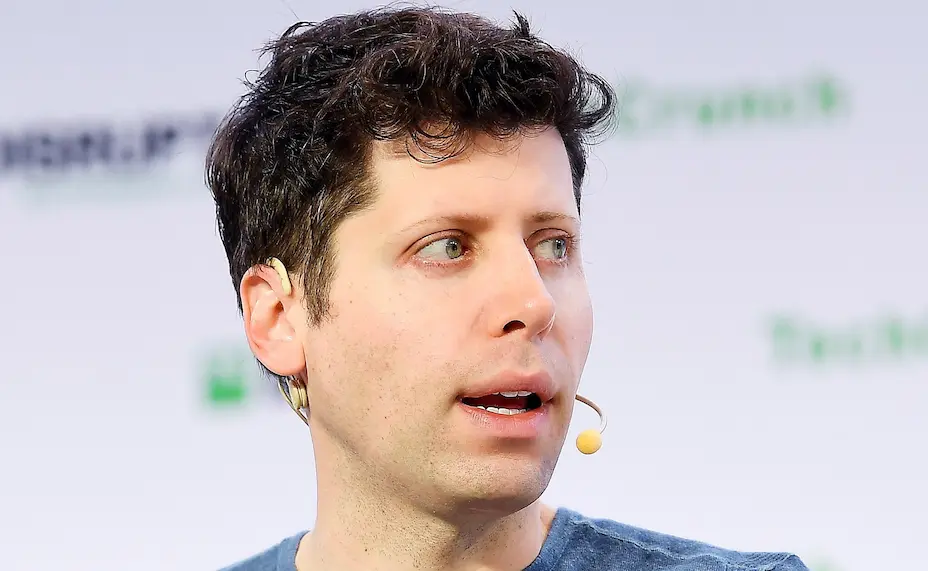
How AI Is Set to Replace Customer Support Jobs-Altman’s Disruptive Forecast (photo-wikipedia)
September 20, 2025 – Global Tech Desk
Sam Altman Bold AI Warning – OpenAI CEO Sam Altman has made a statement that’s shaking up the job market:
“I’m confident that a lot of current customer support that happens over a phone or computer, those people will lose their jobs, and that’ll be better done by an AI.”
His words, spoken during an interview on The Tucker Carlson Show, weren’t just a prediction, they were a warning. Altman believes that artificial intelligence will soon replace entire categories of jobs, starting with customer service and possibly moving toward programming. But he also pointed out that some professions, like nursing, will remain safe because of their deep human connection.
This blog breaks down Altman’s message, what it means for workers, and how we can prepare for a future shaped by machines.
Why Altman Believes AI Will Replace Customer Support First
What Sam Altman Bold AI Warning Means – Customer support jobs are among the most vulnerable to AI automation. Altman explained that AI tools like ChatGPT can already handle scripted conversations, answer questions, and resolve issues faster than many human agents.
Here’s why customer service is at risk:
- Repetitive tasks: Most support calls follow predictable patterns.
- Cost efficiency: AI can work 24/7 without salaries or breaks.
- Scalability: One AI system can handle thousands of queries at once.
- Consistency: AI doesn’t get tired or emotional—it gives uniform responses.
Companies like Oracle and Salesforce have already started cutting live agents from their teams. Altman’s prediction aligns with this trend, suggesting that contact centers will soon be staffed by bots instead of people.
But not everyone agrees. Some experts argue that customer service requires empathy, nuance, and trust qualities that AI still struggles to replicate.
What About Programmers? Altman’s Uncertain Forecast
Altman was less confident when it came to software developers. He admitted that the future of programming is harder to predict.
On one hand, AI tools are helping non-coders build websites, apps, and games just by typing prompts. This could reduce the need for traditional programmers. On the other hand, demand for digital products is growing, and AI might simply make developers more productive.
Here’s what Altman said:
“A job that I feel way less certain about what the future looks like for is computer programmers… You’re able to use these AI tools to just be hugely more productive.”
So, will AI replace coders or empower them? The answer may depend on how fast industries adapt and how well programmers learn to work with AI instead of against it.
Which Jobs Are Safe? The Human Touch Still Matters
Not all professions are at risk. Altman was clear that jobs requiring deep human connection like nursing are unlikely to be replaced by AI.
Why nursing is safe:
- Empathy: Patients need emotional support, not just medical advice.
- Intuition: Nurses often make decisions based on subtle cues.
- Trust: People feel safer with a human caregiver.
- Physical presence: Many tasks require hands-on care.
Altman’s view aligns with DeepMind CEO Demis Hassabis, who also believes that roles rooted in empathy will remain uniquely human.
Other safe professions may include:
- Teachers (especially early childhood education)
- Therapists and counselors
- Artists and performers
- Social workers
- Emergency responders
These jobs rely on emotional intelligence, creativity, and moral judgment—areas where AI still falls short.
How Workers Can Prepare for an AI-Driven Future
Altman’s message isn’t just about job loss-it’s about adaptation. He emphasized that the future of work will depend on how well people learn to work with AI.
Here are some ways to prepare:
Upskill with AI Tools
Learn how to use AI to enhance your work. Whether you’re in marketing, design, or coding, AI can boost your productivity if you know how to use it.
Focus on Human Skills
Develop emotional intelligence, communication, and leadership. These are the skills AI can’t replicate.
Explore Hybrid Roles
Look for jobs that combine technical and human elements like AI trainers, prompt engineers, or digital ethicists.
Stay Curious
The job market is changing fast. Stay updated, take online courses, and be open to new career paths.
Advocate for Ethical AI
Support policies that protect workers and promote responsible AI development. Altman himself admitted that leading an AI company comes with moral responsibility.
“Look, I don’t sleep that well at night,” he said, referring to the ethical weight of his role.
Final Thoughts: What Altman’s Warning Really Means
Sam Altman’s statement is more than a prediction, it’s a wake-up call. AI is not just a tool, it’s a force that’s reshaping industries, redefining skills, and challenging our ideas about work.
Some jobs will disappear. Others will evolve. And many will be created that we haven’t even imagined yet.
The key is not to fear AI but to understand it, adapt to it, and use it to build a better future. As Altman said, “No one can predict the future perfectly.” But with the right mindset, we can shape it.
Also read: AI Jobs 2025: The Best Careers in Artificial Intelligence
Stay informed with the latest news and updates – only on Rapido Updates.